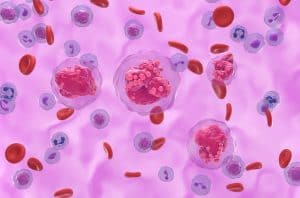
ABPI launches legal action to overturn £20m price cap
pharmafile | July 11, 2017 | News story | Manufacturing and Production, Medical Communications, Sales and Marketing | ABPI, NHS England, NICE
When NICE announced in March that it would impose a £20 million per year cap on the price of drugs, it was never going to be a popular decision within the pharmaceutical industry.
Just how much the industry disliked the decision has become clear after the ABPI was revealed to have applied for a Judicial Review. The industry body hopes to overturn the decision on the grounds that it will cause significant delays for patients waiting for treatment.
The additional process that has been added to NICE’s cost-effectiveness recommendation means that if a drug is likely to be used by a significant number of patients, likely to cost NHS England an amount greater than £20 million, then further price negotiations will be triggered.
This means that after NICE has deemed the drug itself cost-effective, under its quality-adjusted life year (QALY) determination, but it would cost the NHS beyond £20 million, there is the option to provide a three-year negotiation period to reduce this cost.
The £20 million price limit then is not actually a ‘cap’ but a means of triggering further discussions on pricing. Previously, once the drug had been determined cost-effective by NICE, NHS England had 90 days in which to ensure patients had access.
This decision, reached between NICE and NHS England, is clearly one that hopes to save money in the long-term but has also been learnt from the way pricing has changed in recent years. Cancer medicines and rare disease treatment costs have been increasing over the last decade, with particular examples claiming large chunks from the NHS budget.
There are fears that breakthroughs in an area with growing population numbers, such as in dementia, could wipe a significant proportion of the NHS budget, leaving other areas vulnerable to underfunding. The £20 million figure would then allow a brake to be placed on such a treatment until it was deemed affordable.
NICE has already determined that around one in five medicines that would undergo evaluation would be affected by the decision. It is inevitable that there would be delays to such drugs, as pricing negotiations are notoriously slow –Roche recently found this out, with its three-year process getting Kadcyla to market in the UK.
This is the line of attack that the ABPI chose to follow when explaining its decision to launch the legal challenge. ABPI Chief Executive, Mike Thompson, said, “These new arrangements will delay access to cost-effective medicines and deny treatments to patients suffering from rare diseases. After many months of raising concerns with NICE, NHS England and the Department of Health and offering to work constructively on alternative proposals, we have applied to formally challenge these proposals in court.”
The rare disease area is one that could become a major point of contention and is one that the ABPI is specifically looking to overturn. The argument could be put forward that it could lead to detrimental outcomes for smaller population groups on cost grounds, raising awkward questions about priorities for NICE and the NHS.
The sensitive area leaves both sides relatively cautious about alienating the public, with NICE so far not commenting on the case and ABPI avoiding any discussion of financial implication for companies to focus on patient access.
Ben Hargreaves
Related Content

NICE recommends migraine treatment for NHS use
The National Institute for Health and Care Excellence (NICE) has shared draft guidance recommending AbbVie’s …

GSK’s Jemperli recommended by NICE for endometrial cancer treatment
GSK has announced that the National Institute for Health and Care Excellence (NICE) has recommended …

NICE recommends SC treatment of AbbVie’s Tepkinly for patients with DLBCL
AbbVie has announced that the National Institute for Health and Care Excellence (NICE) has recommended …








